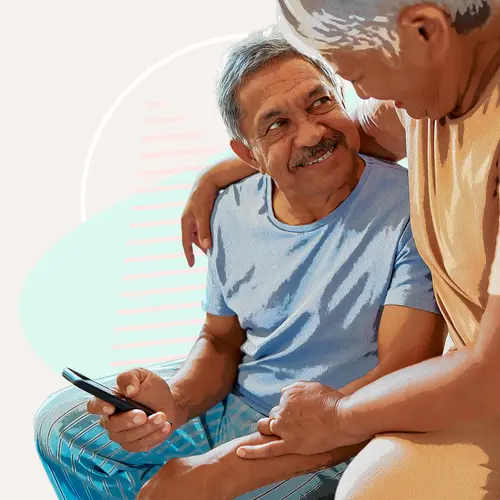Life goes on after a prostate cancer diagnosis, and often for a very long time. If your disease is still in the early stages and you've opted not to treat it, it may have little or even no effect on you. But there may be some adjustments to make to your life during treatment. Here's how you can live well even with prostate cancer.
Changes to Your Sex Life
Sex will be a little different if you have surgery to remove your prostate gland. It means you won’t ejaculate, though you can still have an orgasm. Trouble getting erections or having orgasms is also a risk after an operation or if you have radiation therapy.
You can work with your doctor to cut those risks. Start by asking about "nerve-sparing" surgery and more precise radiation therapy. You can ask about the success they've had in protecting other men from these side effects.
If you do end up having problems after treatment, you’re not out of luck. Keep in mind that for many men, the problems go away on their own once the body has time to heal. Medications, devices, penile implants, and couples counseling also can make your sex life satisfying again. But most of all, be patient with yourself.
Better Bladder Control
Prostate cancer and its treatment can cause trouble with your bladder. You might feel the urge to go to the bathroom all the time, not be able to go when you want to, have a weak stream, or leak in between trips to the toilet.
These side effects may go away soon after treatment, or they might linger for a while. Either way, you can take control of the problem.
- Try Kegel exercises to strengthen the pelvic floor muscles that support your bladder. Kegels are helpful before treatment, as well. Ask your doctor how to do them.
- Your doctor may prescribe medications.
- Pads in your underwear can catch leaks. You can also wear adult diapers, but it’s rare for the problem to be severe enough to need them.
- "Condom catheters" go over your penis to catch the urine (though they’re uncommon and usually a last resort before surgery).
- Surgery. There are different types depending on the cause of your problem.
Practice Healthy Habits
You can live a long time with prostate cancer. If you catch and treat it early, you might even be able to cure it. Staying as healthy as possible plays an important role. Follow these tips:
Stay informed. Ask your doctor how likely the cancer is to come back or to get worse, when it might happen, and signs you should watch for.
Continue follow-up care. This means getting the tests your doctor suggests and keeping all your medical appointments. You're more likely to notice troubling signs before they become serious.
Exercise regularly. Some research suggests those who exercise after prostate cancer treatment live longer than those who don’t. More studies are needed. Even so, exercise has several known benefits and is an important part of your overall health.
Eat healthy foods. Lots of fruits and vegetables help keep your immune system strong and lower your risk of cancer.
Keep your weight under control. Studies show being overweight lowers your chances of getting better after treatment. More research is needed to know if losing weight helps, but maintaining a healthy weight is also an important part of your overall health.
Manage stress. Do what you can to let go of worry. Relaxation exercises, like deep breathing or meditation, can help. Talking to a mental health professional may be helpful, too. If you haven’t already, get your finances and other affairs in order. That’s one less thing to worry about.
Get enough rest. Poor sleep weakens your immunity. And your immune system can’t fight infections that could lead to cancer if it’s not working well.
Limit alcohol. Research shows drinking two or more drinks a day can raise your chances of getting prostate cancer.
Find a New Normal
Cancer is a big life change. Work on accepting that things won’t be just as they always were. It can help you adjust to life with prostate cancer. Here are some things that might be different:
- Body image. You may need to adjust how you see yourself or deal with changes in your self-esteem.
- Identity. Some men feel that their "masculine" identity has changed as a result of the cancer.
- New family roles. As you go through treatment and recovery, you may find that you can't do everything you used to do at home.
Some of these changes may work themselves out over time. For instance, as you recover, you may be able to resume your activities around the house. Others, such as identity and self-esteem issues, could benefit from talking to a professional, people close to you, or other survivors.

